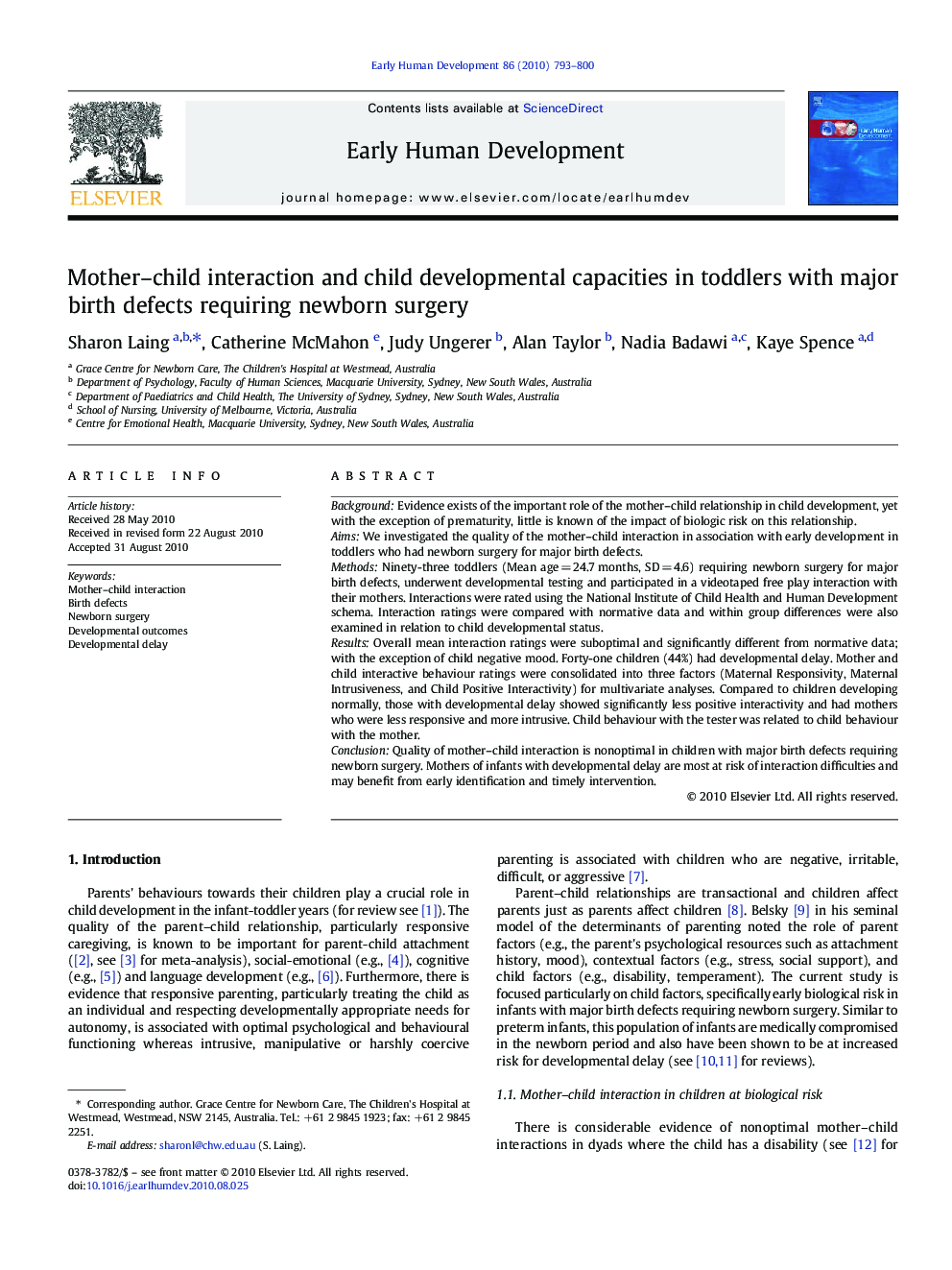| Article ID | Journal | Published Year | Pages | File Type |
|---|---|---|---|---|
| 3917557 | Early Human Development | 2010 | 8 Pages |
BackgroundEvidence exists of the important role of the mother–child relationship in child development, yet with the exception of prematurity, little is known of the impact of biologic risk on this relationship.AimsWe investigated the quality of the mother–child interaction in association with early development in toddlers who had newborn surgery for major birth defects.MethodsNinety-three toddlers (Mean age = 24.7 months, SD = 4.6) requiring newborn surgery for major birth defects, underwent developmental testing and participated in a videotaped free play interaction with their mothers. Interactions were rated using the National Institute of Child Health and Human Development schema. Interaction ratings were compared with normative data and within group differences were also examined in relation to child developmental status.ResultsOverall mean interaction ratings were suboptimal and significantly different from normative data; with the exception of child negative mood. Forty-one children (44%) had developmental delay. Mother and child interactive behaviour ratings were consolidated into three factors (Maternal Responsivity, Maternal Intrusiveness, and Child Positive Interactivity) for multivariate analyses. Compared to children developing normally, those with developmental delay showed significantly less positive interactivity and had mothers who were less responsive and more intrusive. Child behaviour with the tester was related to child behaviour with the mother.ConclusionQuality of mother–child interaction is nonoptimal in children with major birth defects requiring newborn surgery. Mothers of infants with developmental delay are most at risk of interaction difficulties and may benefit from early identification and timely intervention.
